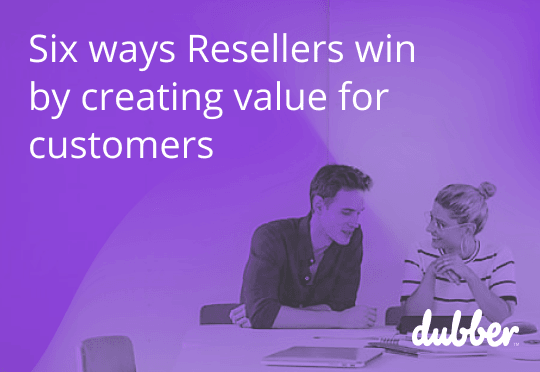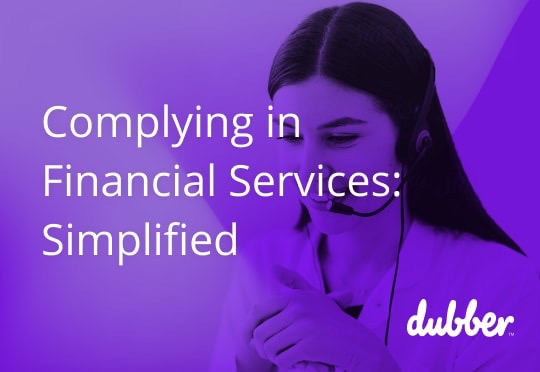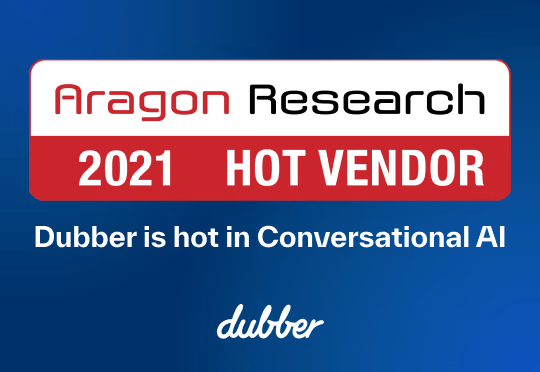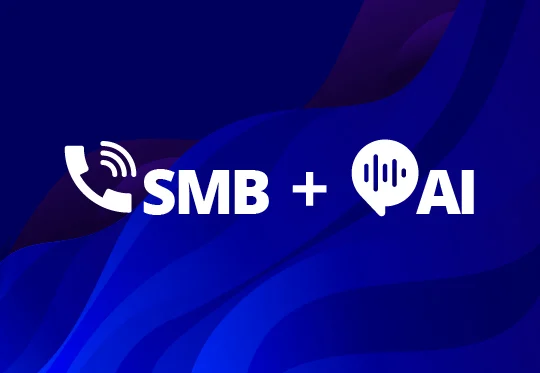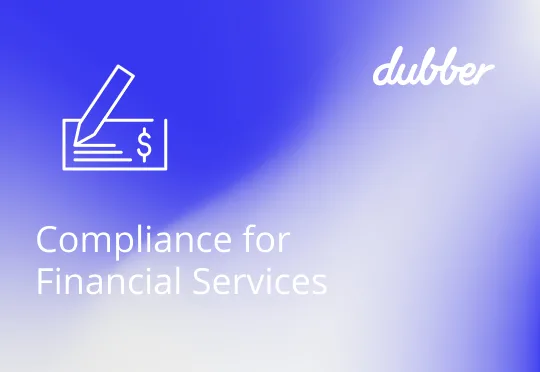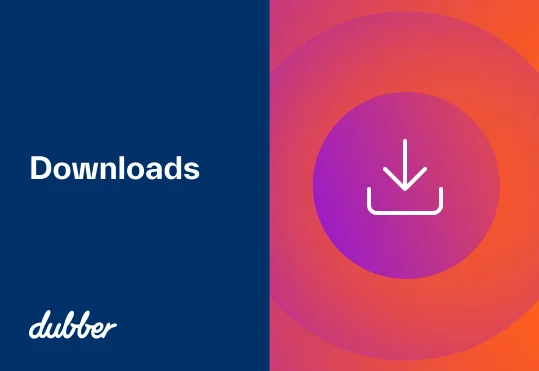Everyone should be able to access their voice data – no matter the size of their business. Unified Call Recording and voice AI doesn’t need big budgets for up-front spending, or a big office to store bulky on-premise recording equipment. Even small business owners can see great return on investment when they start recording their calls.
1. Gain greater visibility and easily resolve disputes
Phone calls remain the dominant form of business conversation. Email, chat, and messaging are all good for quick transactional communications but, especially with the increase in remote working, the most important conversations happen on voice or video calls. Unfortunately the data from those conversations is lost as soon as the call ends.
If the call was recorded from your service provider network (with no hardware or software to install), it could be replayed from anywhere, you could review a full transcript, and receive alerts and reports on customer satisfaction based on the sentiment of calls.
Imagine you are Chris, who has run his building business for decades and is slowly handing responsibility to his two sons as he edges towards retirement. He still wants to keep track of his team and their jobs as he trains the new company directors and sometimes worries about who has committed what and at what price.
By recording conversations across all company phones, Chris has greater visibility while letting his sons take leadership over the business operations. Easy to digest call transcripts allow him to quickly assess upcoming commitments and sentiment analysis shows how happy customers are. Chris can even search by keyword for specific jobs and set up alerts for negative sentiment to ensure that any unsatisfied customers are followed up with.
While call transcripts provide Chris with peace of mind, the rest of the team also benefit from having proof of their conversations. When it comes to final invoices, they have the reassurance of knowing exactly what was agreed between them and the customer and are protected in the case of any disputes.
2. Train staff in proven sales techniques
The phone is one of a sales rep’s most important tools as they build their relationship with existing customers and nurture leads towards a sale. Sales people hone their pitches and techniques to a fine art and adapt their messaging depending on the product and the contact. In an ideal world, they’d be able to pass this knowledge onto new team members, but this can be difficult unless they listen into every conversation. By recording calls, sales leaders can isolate successful sales pitches and use these as the basis for staff training.
Alex is the owner of a tech startup that is focused on driving growth. Alex has recently employed a number of new sales staff and is keen for them all to get behind the company messaging with effective sales pitches that turn leads into customers.
By recording calls, Alex can repurpose conversational content for coaching new team members. Sentiment analysis of recordings can identify happy customers, and this data can be cross-referenced with the status of leads and deals to find the top performing messaging. This data also makes it easy for Alex to measure the achievements of the team and reward their hard work.
3. Improve customer experience through data-driven insights
Salesforce is the source of truth for sales people, who use it to track their interactions with their customers. Imagine if those interactions were available within Salesforce itself. You could recap a conversation, refer to a transcript, and see who else at the business has spoken to your contact and know exactly how they feel about the brand and at what stage of the purchase journey they are at.
Charlie owns a fashion brand and has a sales team that works with department stores and online retailers to stock the brand. Charlie is interested in how data can inform business decisions but is a complete beginner when it comes to data science. With a free Google Data Studio account, Charlie can use templates to see reporting from sales calls and get a quick insight into how the team is performing.
By integrating recorded calls with Salesforce, Charlie can see a more granular view of sales interactions. Sentiment analysis can give a report of customer satisfaction at a call level, while Charlie can also set up reporting for how wholesale customers are feeling about the brand by week or by month. One staff member might spend more time on the phone than others, and by viewing this data alongside their sales performance Charlie can see that these longer conversations build relationships with customers. By applying this knowledge to the rest of the business, Charlie can improve customer retention.
4. Reduce churn with customisable automated alerts
Call recording is vital for legal firms to store a secure record of their conversations with clients. But these calls could provide valuable insights rather than being locked away with no further action. The data held within these conversations could provide the information required to increase client satisfaction and loyalty.
Ruth runs a family law firm, with her two daughters employed as divorce lawyers. Ruth spends a lot of time trying to win big clients and maintain good relationships with her existing clients. She wants to make sure that the firm is providing excellent service to keep her clients happy and loyal.
With automated alerts, calls are automatically flagged for review. Ruth can set up custom parameters for notifications, either via email or to automate processes in software such as a CRM tool using an API. She might want all calls with negative sentiment to be sent to her inbox so she can check whether there is anything she needs to follow up on, or there might be a particular client she is worried may leave in favour of a competitor and so set an alert for any calls to or from their number.
Call transcripts provide a simple and easy way to review key conversational content and detect unhappy clients and Ruth can even review these when she is at home, or travelling between client meetings. With her secure login and specific permissions, she can access calls from any location or device.
5. Stop taking notes with instant call and meeting transcripts
Dispersed workforces are more common now than ever before, and communication is being put to the test. Sharing information with team members via email and Slack can lose nuance and tone but involving a huge team in client conversations can be unwieldy and lead to interruptions and sidetracking.
Robin is the owner of a content agency with a roster of freelance copywriters, graphic designers, and video creators. Robin spends most of the day meeting clients to get a detailed brief of their needs and chooses the appropriate member of the team to create the required content.
By recording client calls and meetings, Robin doesn’t need to take notes and can really be in the moment with clients and have time to think and ask all the right questions – safe in the knowledge that a full transcript of the conversation will be waiting. Working with a dispersed workforce, Robin relies on being able to share details of jobs with the team of content creators. With secure sharing, conversations can be accessed by the freelancer undertaking a job so they know exactly what is required.
All of this is possible with Dubber. Are you a small business owner thinking about getting call recording? Speak to a member of our team today for advice on the right subscription for you.
